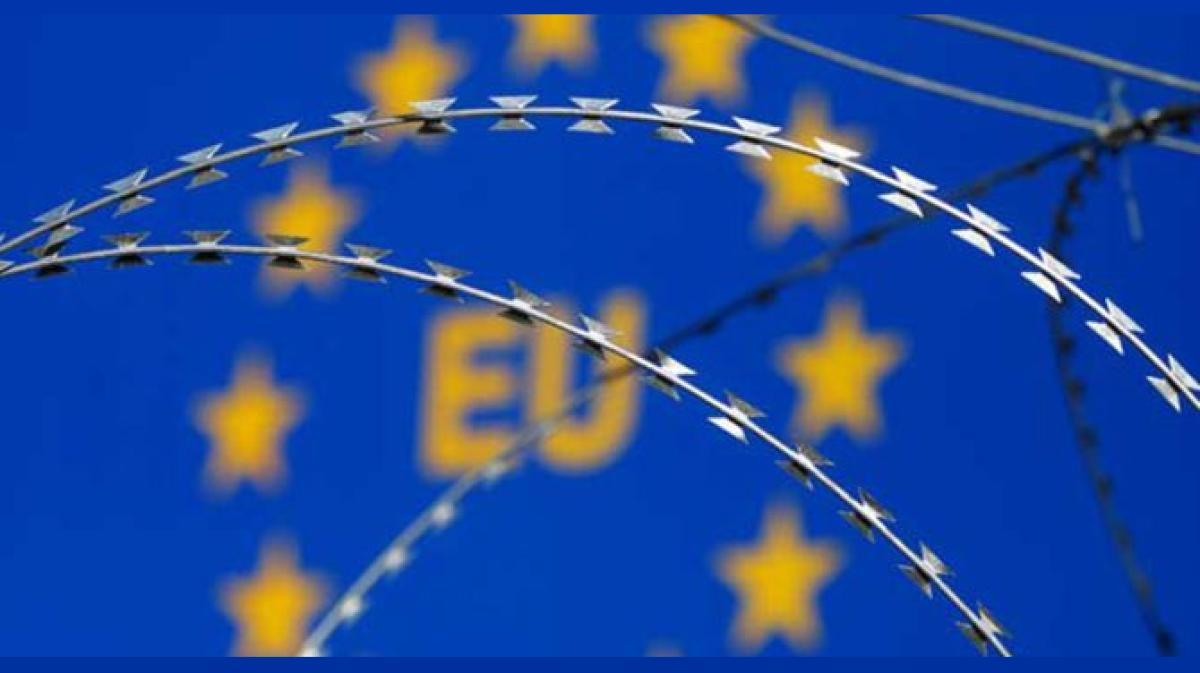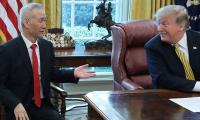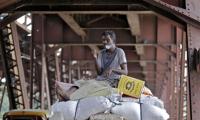India Appeals WTO Ruling on ICT Import Duties - EU Dispute
India has appealed a WTO panel ruling in favor of the EU regarding import duties on ICT products, citing violation of WTO rules. This follows failed negotiations for a mutually agreeable solution.

New Delhi, Dec 15 (PTI) India has appealed against a ruling of the World Trade Organization's (WTO) trade dispute settlement panel in a case filed by the European Union against New Delhi's import duties on nine information and technology products.
India's move came after both regions were not able to arrive at a mutually agreeable solution (MAS).
"India and the EU have negotiated to arrive at a MAS for the past seven months, but the EU has now filed for adoption of panel report on December 7 and therefore, India has appealed against it on December 8 in the WTO," Additional Secretary in the commerce ministry Peeyush Kumar told reporters here.
As part of the MAS, the EU was seeking customs duty concessions on certain goods, which was not acceptable to India as it violates WTO rules.
These concessions can only be given in a free trade agreement, Kumar said.
In September, the two regions had asked WTO's dispute settlement body not to adopt a ruling against New Delhi's import duties on certain ICT products like mobile phones and components, base stations, integrated circuits and optical instruments till December 18, as both sides were engaged in bilateral talks to resolve the matter.
The panel in April had ruled that import duties imposed by India on certain information and technology (ICT) products violate global trading norms.
"India notified its decision to appeal the panel report in the case brought by the European Union (EU) in 'India Tariff Treatment on Certain Goods'. The appeal was circulated to WTO members on December 14," the WTO has said in a statement.
In May, India filed another appeal in a similar dispute case initiated by Japan regarding the tariff treatment that India accords to certain goods in the ICT sector.
According to WTO rules, a WTO member or members can file a case in the Geneva-based multilateral body if they feel that a particular trade measure is against the norms of the WTO.
The WTO's dispute settlement body (DSB) is one of the important arms. Besides monitoring global exports and import-related rules, it adjudicates trade disputes between the member countries.
Bilateral consultation is the first step to resolve a dispute. If both sides are not able to resolve the matter through consultation, either of them can approach for establishment of a dispute settlement panel.
The panel's ruling or report can be challenged at the WTO's appellate body.
Interestingly, the appellate body is not functioning because of differences among member countries in appointing its members. Several disputes are already pending with this body, which is not functional, as the US has been blocking the appointment of the members.
"India hereby notifies DSB of its decision to appeal to the appellate body regarding certain issues of law covered in the panel report and certain legal interpretations developed by the panel in the dispute 'India Tariff Treatment on Certain Goods in the ICT sector'," the communication submitted by India to the WTO said.
India has sought review by the appellate body of the "errors of law and legal interpretation" by the panel in its report and findings.
The EU, on April 2, 2019, challenged the introduction of import duties by India on a wide range of ICT products, including mobile phones and components, base stations, integrated circuits and optical instruments.
The EU had claimed that the measures appear to be inconsistent with certain provisions of the WTO. Later, Chinese Taipei and Japan also joined the dispute.
Imports of these nine goods from the EU stood at USD 340.15 million in 2022.
With Chinese Taipei, Kumar said, talks are on for a MAS. PTI RR ANU
India's move came after both regions were not able to arrive at a mutually agreeable solution (MAS).
"India and the EU have negotiated to arrive at a MAS for the past seven months, but the EU has now filed for adoption of panel report on December 7 and therefore, India has appealed against it on December 8 in the WTO," Additional Secretary in the commerce ministry Peeyush Kumar told reporters here.
As part of the MAS, the EU was seeking customs duty concessions on certain goods, which was not acceptable to India as it violates WTO rules.
These concessions can only be given in a free trade agreement, Kumar said.
In September, the two regions had asked WTO's dispute settlement body not to adopt a ruling against New Delhi's import duties on certain ICT products like mobile phones and components, base stations, integrated circuits and optical instruments till December 18, as both sides were engaged in bilateral talks to resolve the matter.
The panel in April had ruled that import duties imposed by India on certain information and technology (ICT) products violate global trading norms.
"India notified its decision to appeal the panel report in the case brought by the European Union (EU) in 'India Tariff Treatment on Certain Goods'. The appeal was circulated to WTO members on December 14," the WTO has said in a statement.
In May, India filed another appeal in a similar dispute case initiated by Japan regarding the tariff treatment that India accords to certain goods in the ICT sector.
According to WTO rules, a WTO member or members can file a case in the Geneva-based multilateral body if they feel that a particular trade measure is against the norms of the WTO.
The WTO's dispute settlement body (DSB) is one of the important arms. Besides monitoring global exports and import-related rules, it adjudicates trade disputes between the member countries.
Bilateral consultation is the first step to resolve a dispute. If both sides are not able to resolve the matter through consultation, either of them can approach for establishment of a dispute settlement panel.
The panel's ruling or report can be challenged at the WTO's appellate body.
Interestingly, the appellate body is not functioning because of differences among member countries in appointing its members. Several disputes are already pending with this body, which is not functional, as the US has been blocking the appointment of the members.
"India hereby notifies DSB of its decision to appeal to the appellate body regarding certain issues of law covered in the panel report and certain legal interpretations developed by the panel in the dispute 'India Tariff Treatment on Certain Goods in the ICT sector'," the communication submitted by India to the WTO said.
India has sought review by the appellate body of the "errors of law and legal interpretation" by the panel in its report and findings.
The EU, on April 2, 2019, challenged the introduction of import duties by India on a wide range of ICT products, including mobile phones and components, base stations, integrated circuits and optical instruments.
The EU had claimed that the measures appear to be inconsistent with certain provisions of the WTO. Later, Chinese Taipei and Japan also joined the dispute.
Imports of these nine goods from the EU stood at USD 340.15 million in 2022.
With Chinese Taipei, Kumar said, talks are on for a MAS. PTI RR ANU
You May Like To Read
TODAY'S MOST TRADED COMPANIES
- Company Name
- Price
- Volume
- Vodafone-Idea-L
- 11.65 (+ 3.56)
- 106772451
- Alstone-Textiles
- 0.28 ( -3.45)
- 44187760
- Mangalam-Industrial
- 0.88 ( -2.22)
- 39177573
- Sunshine-Capital
- 0.27 (+ 3.85)
- 35956340
- GMR-Airports
- 104.40 (+ 6.37)
- 30453005





